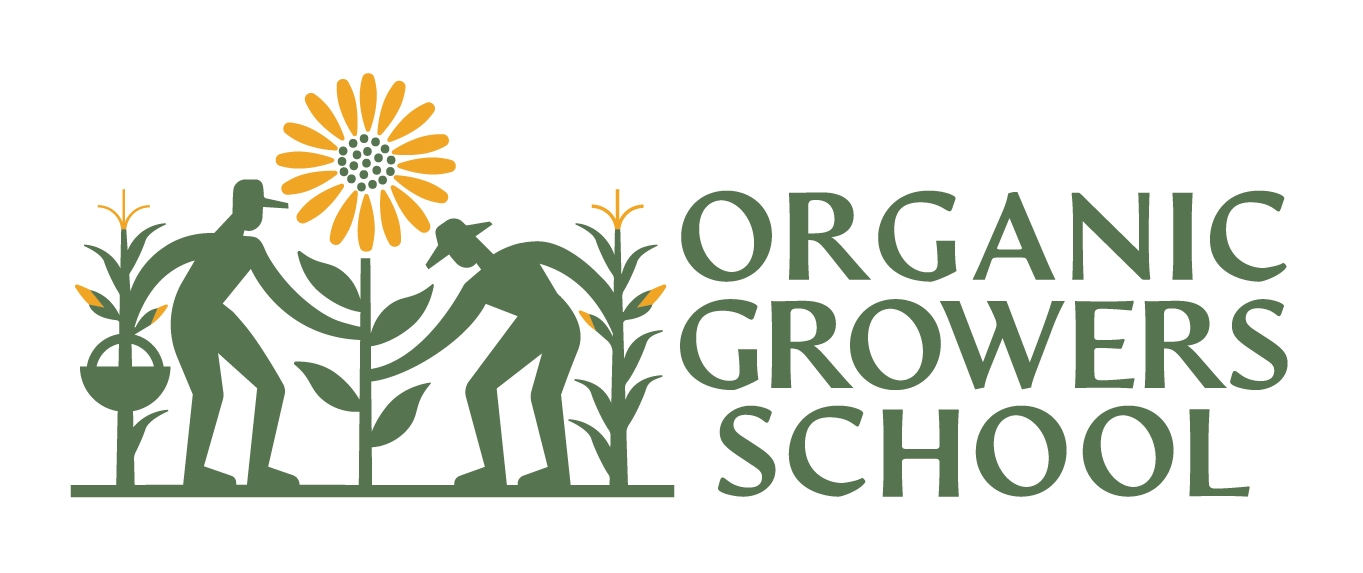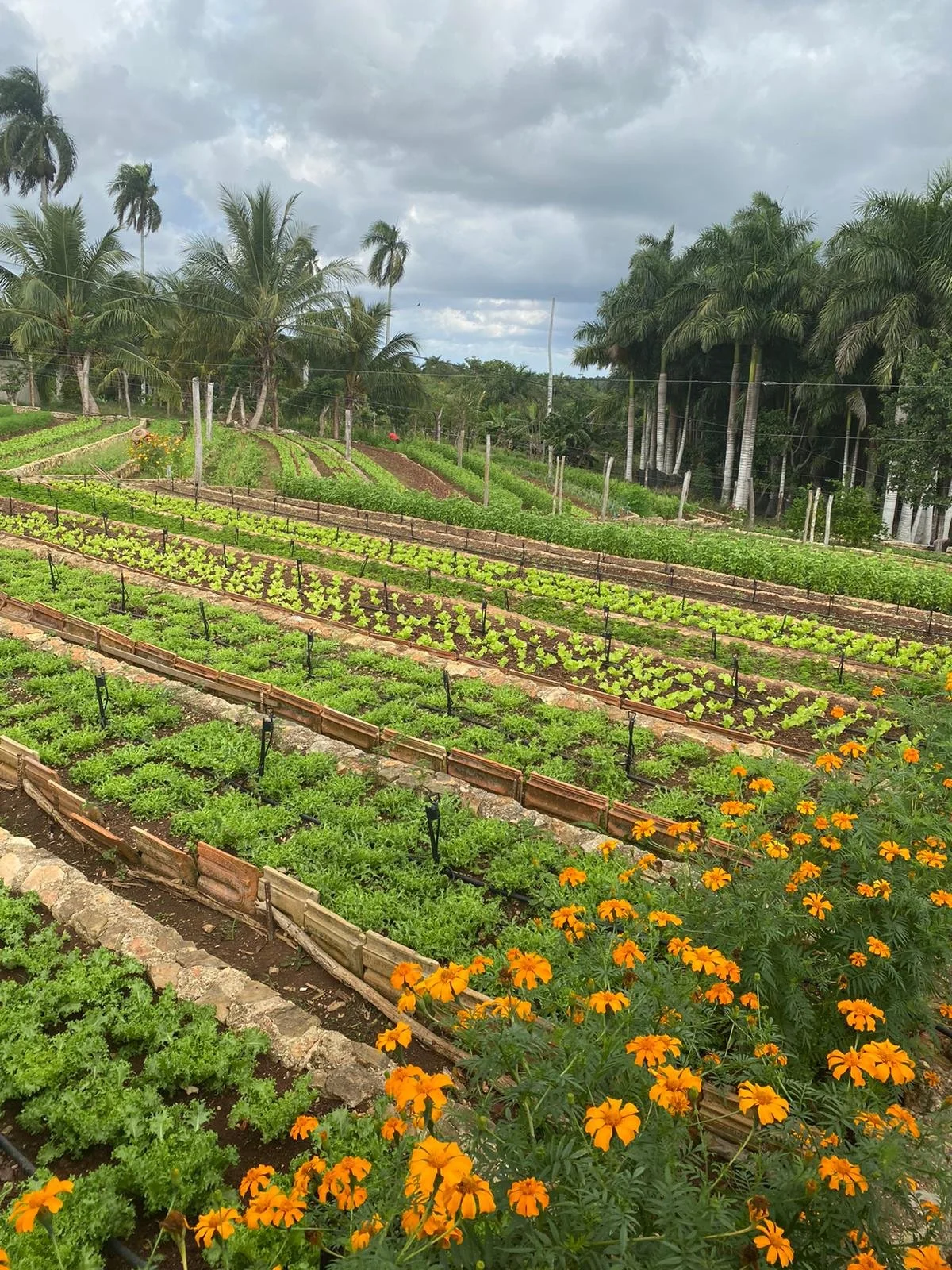
Cuba Agroecology Tours
A cross-cultural learning opportunity that shows how Cuban farmers are prioritizing organic, localized agriculture and working to transform community-based food systems
Join OGS for a Tour of Cuba’s Sustainable Farms
Learn from farmers and food activists about Cuba’s transition to agroecological farming practices and its national policies that prioritize sustainable farming and hunger remediation.
Connect with farmers, consumers, activists, NGOs, policymakers, and experts working to transform the global food system.
Acquire the knowledge and strategies to create just, sustainable, local, and healthy food systems in your own communities.
Our next Cuba Tour is Coming Soon! Sign up below to get updates.
Everything You Need to Know About the Cuba Tour
-
With rising global fuel prices and increased awareness of the harm caused by industrial agriculture, Cuba began establishing research centers to focus on organic production in the 1970s. The gradual shift away from high-input farming methods in the 70s and 80s, however, was insufficient to address the crisis that befell Cuba in 1989. With the collapse of the Soviet Union came an abrupt end to Cuba’s primary trade relationship. Its access to agricultural inputs ended overnight, propelling Cuba into what is now known as the “Special Period.” Imports plummeted and hunger escalated.
To combat the crisis, the nation embarked on a massive and rapid conversion to agroecological agriculture in an attempt to simultaneously reduce inputs (petroleum and agrochemicals) and boost food production that continues today.
-
Agroecology is the study of ecological systems as they apply to agriculture. It is a science, a movement, and a practice. At OGS, we like to think of the farm as a system and observe nature as the ideal model of sustainable production.
Agroecological practices strive to incorporate all elements of an agricultural ecosystem (water, nutrients, soil, plants, and animals) to maximize production and minimize impact. Agroecological methods include the following:
silvopasture = animals in the woods!
agroforestry = forest farming
permaculture = systems designed to be sustainable and self-sufficient
Of course, each of these methods has been practiced on every continent since humans have existed, though they are just recently being named and defined by the modern sustainable agriculture community.
During this trip, we will participate in and observe how the Cuban agricultural community has embraced agroecology in all of its forms and learn why Cuba is considered one of the leading global experts in agroecological methods.
Sources:
Agroecology as a science, a movement or a practice. A review. Agronomy for Sustainable Development (published online)
Sustainable Agriculture & Resistance in Cuba by Fernando Funes
-
This tour will be structured with full days of travel, meetings, and activities. Some free time is scheduled on each tour, but we recommend travelers arrive early or stay later than the tour dates if they hope to spend time relaxing, shopping, visiting museums, etc. We are happy to extend your accommodations at your own expense: Cuban travel restrictions will only allow you to stay in the country two days before and two days after the tour dates.
You will have the opportunity to meet and forge solidarity with people and organizations that are working to solve food insecurity in their communities using local resources.
Trip Activities:
Farm tours
Farm service and work time (optional)
Walking and hiking
Leisurely free time
Food sovereignty discussions
Lectures and panels
-
Travel to Cuba for tourist activities remains prohibited for US Citizens. However, there are 12 categories of authorized travel. The Department of Treasury’s Office of Foreign Assets Control has issued general licenses in all 12 categories of authorized travel, subject to appropriate conditions. This organized trip has in the past fall under the category “Support for the Cuban people”—interacting and learning from Cuban people, and supporting local businesses, are built into each tour. It can be difficult to obtain a visa to travel in Cuba without knowing the ins and outs of these licenses, which is why traveling with an organized tour is highly recommended.
You will receive 1) an orientation packet detailing airport logistics, packing lists, health updates, weather conditions, and cultural traditions within the country; and 2) a Food First tour-specific “reader” consisting of educational materials that provide a foundation of the history, culture, and politics of Cuba. A conference call will be scheduled one month prior to departure to discuss the logistics of traveling to Cuba.
-
The cost for the tour is $3,250. A non-refundable $500 deposit, paid by credit card or check, is required to secure your place on the trip. Payments for the remaining balance can be made in full or in installments. We will work with you to create an installment plan that works for your budget. Please contact us to discuss payment plan options.Please mail deposit checks to:
Organic Growers School
c/o Cuba Trip Organizer
PO Box 17804
Asheville, NC 28816
Price includes:
All in-country transportation during the tour, including airport transfer to and from Havana airport
Shared rooms in casas particulares (the Cuban equivalent of AirBNBs) for all of the nights on the tour - private rooms can be arranged at an additional cost
Two meals per day, plus bottled water to refill your water bottles
OFAC-approved People-to-People License provided by Altruvistas
Tour leader
Local guides, drivers, guest speaker honorarium
Translation of all program activities into English
Preparatory reading materials (Cuba Tour Reader) and Tour Orientation Packet
All scheduled program activities, presentations, and workshops
Price will NOT include:
Airfare to Cuba: Flights are often very reasonable, and direct flights are available from Charlotte for as little as $300.
Tourist Visa: Visas can be purchased through your airline, ranging from $50 to $100.
Mandatory Cuban health insurance and airline taxes: most commercial airlines include taxes and health insurance in the cost of your ticket. Please double-check with your airline.
Gratuity: for the on-the-ground guide, translation, and driving services. We recommend you bring $15 per person daily for this fee (totaling $150). Please bring this in cash.
The Tour Coordinator will collect this on-site at the end of the trip and give it to the on-the-ground guide and driver.
Other: extra drinks, one meal/day, extracurricular (non-planned) activities, and any souvenirs you would like to bring home.
-
The Cuba Agroecology Tour is a fundraiser for Organic Growers School, a 501c3 nonprofit organization that’s been providing organic education in the Southern Appalachians for 25 years. Our program costs don’t cover our operating expenses, and it’s through community support that we’ve been able to sustain our educational programming for a quarter century.
By participating in the Cuba Agroecology Tour, you are helping fund our programming and fulfill our mission: to educate, inspire, and support our community to farm, garden, and live sustainably.
We have limited partial scholarships available to active farmers or food activists in Southern Appalachia.
-
Organic Growers School has provided organic education to farmers, gardeners, and food enthusiasts for over 30 years. We have worked hard to create a tour curriculum appropriate for growers and food enthusiasts in the Southern Appalachians and beyond. Our partners have been offering Food Sovereignty Tours for over 20 years and are very well-connected in Cuba.
Collectively, we aim to 1) enhance your understanding of the global food system and the way people around the world are working to make it more democratic and sustainable, 2) provide an opportunity for you to view U.S. foreign policy and the corporate food regime from the perspective of Cuban farmers, and 3) learn from Cuba’s agroecological methods. Organic Growers School is committed to creating an equitable learning culture, and we seek to cultivate a learning culture of respectful and reciprocal learning that is non-judgemental and engaging for all people.
This public educational tour is open to anyone interested in learning about agroecology and food sovereignty in Cuba who demonstrates adaptability and sensitivity toward different cultural realities. We will work to recruit a diverse group of travelers, including professionals, teachers, farmers, students, activists, and foodies.

